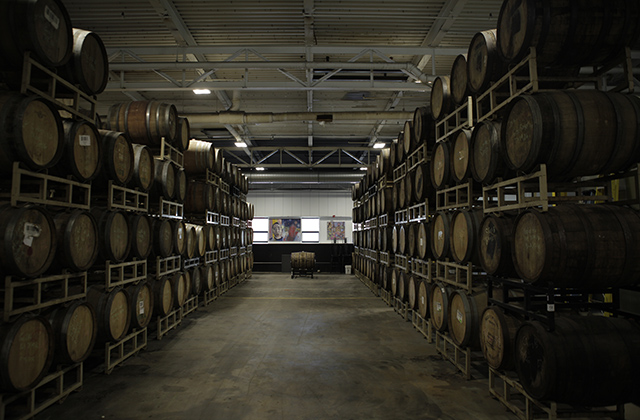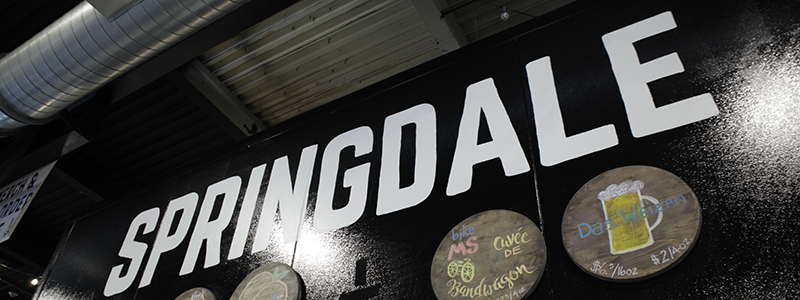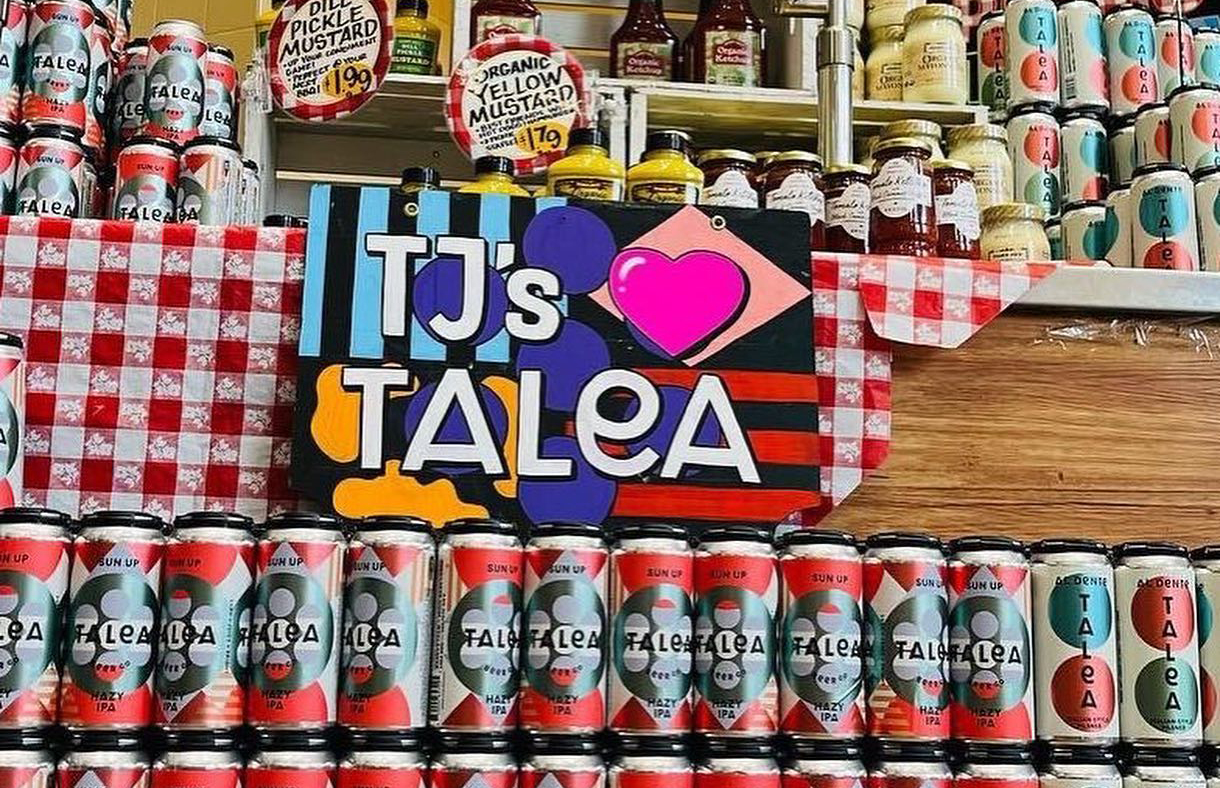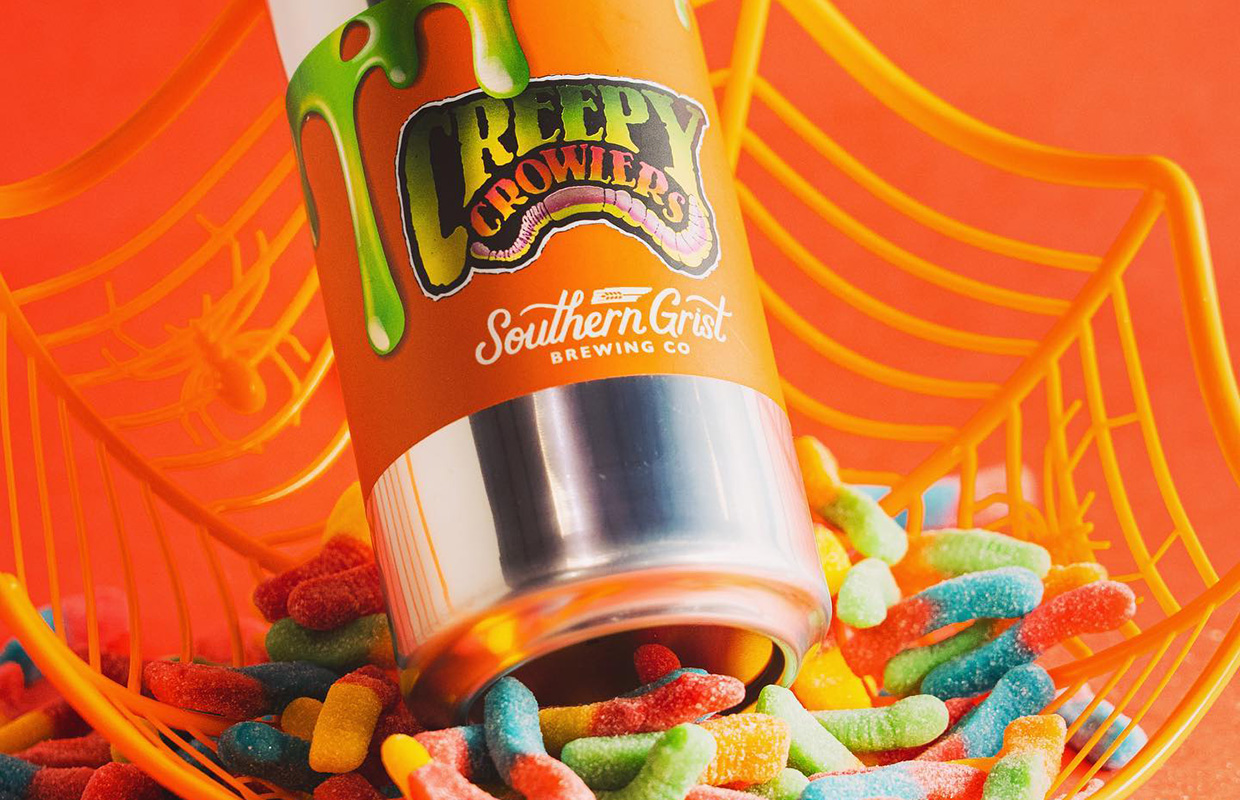
As breweries have expounded on barrel-aging techniques for almost any style of beer that has been created, the need for barrels has led to a new industry via barrel brokerages.
Before, if a brewer needed a barrel it would be up to that individual to make contacts and work with distilleries and wineries to acquire the product needed and the quantity. Now, with the help of brokers, barrel sourcing has gotten easier for every size of brewery.
“Now when I go to source barrels there are so many great choices at every price point,” said Jack’s Abby Barrel Master Matt Cohen, who also operates the Springdale Barrel Room for the Framingham, Massachusettes brewery.
Sourcing barrels has certainly changed over the three years that Charlie Condon has been managing the barrel program for Upslope Brewing’s Lee Hill location, where the brewery houses its barrel-aged creations. “I feel like the increased demand for barrels to be used in beer production has had two basic changes,” he said
“The first is that prices have increased steadily. I would guess the average price of barrels has nearly doubled in that three-year period. The other major impact is the availability and variety of barrels has increased dramatically. Three years ago if I wanted barrels, especially something out of the ordinary, I would have to put some time and effort into sourcing them. Recently I get near five emails a month advertising to me barrels that are available. The types of barrels that I see available now are very diverse.”

So as indicated, easier doesn’t mean as affordable, but with price can also mean better quality.
“It’s a little more expensive, but I’m dealing with someone close, so we save on shipping, so that helps,” said Odell veteran pilot brewer and barrel manager Brent Cordle, who has been sourcing barrels for the Colorado brewery since 2010. “It’s’ nice to have that accessibility. There’s always a stash around and they have the logistics to get us what we need. We pay a little more per barrel, but it’s not substantial for us.”
Before brokers, Cordle said he would have to build relationships individually with distilleries or wineries to acquire the barrels.
“Those avenues have disappeared, now we have brokers that we know can send them,” he said. “They are so involved with so many wineries and distilleries, I can communicate with them and they can put the word out and usually find some great rare barrels.”
Cordle said he just received some Scotch barrels that he couldn’t have found if he didn’t have those connections built with his brokerage nearby.
“They have found Sherry and Port barrels, places that have these in Europe and it’s unique and cool to get those types of things over here,” he said. “They will send out a newsletter of what they have coming in and the pricing. So it gives you ideas for a beer that would go with a barrel.
“If we have an idea of a style and we want to get in a unique-style barrel, I can ask them for it and they can look it up as well. It goes both ways.”
When Cohen first started ramping up the barrel program at Jack’s Abby, and eventually Springdale Barrel Room, he was just going for quantity, trying to get as many barrels in as quick as possible. The ordering and idea process has matured.
“I was trying all sorts of different treatments and pitch rates for the barrels. Just experimenting as much as possible for every run, basically the shotgun approach,” he said. “Now that I have been doing this for longer that has changed in that I can be more selective about what barrels we are ordering. There is more intention behind the ordering. I am buying barrels for the beer I want to make as opposed to ordering barrels and then trying to find a beer that might work with them.”
And brokers have learned along the way as well.
Cordle said that brokers are pretty good about making sure the barrels they get in are fresh.
“If they are beat up, it’s fixed and not leaking like sieves once they get to the brewery,” he explained. “I have taken a trip to my broker (Rocky Mountain Barrel) and they have some cool tools and it’s cool to see how they are doctoring those barrels to make sure they are in good shape.”
Cordle said that because of the age of the barrel and how long it is used, rum and tequila barrels seem to be the toughest to work with.
“Rum leaks, they can be completely sealed, and yet they just drip the whole time while aging, but they age great, the beer comes out awesome but those rum barrels are leaky,” he said with a laugh, “but they put out good flavor.”
Cohen said in his experience, he sees huge differences in the quality of the barrels from broker to broker.
“At the end of the day you have to trust your supplier be it malt, hops or barrels. It’s a barrel so you can’t exactly have a sample sent to you for evaluation. You have to trust your broker to do the legwork for you, that the winery or distillery is being honest about what you are getting and how they have taken care of the barrels,” he said. “It’s never a good feeling when you get a fresh shipment of barrels and there are dixie cups all over the floor, half the barrels have been exposed and open for who knows how long.
“Like I said you have to trust the broker and if there is a problem you have to trust that they will make it right, just like any other supplier.”
With the inclusion of so many barrels so easily now, innovation on the barrel-aging side has expounded as well. Even though whiskey/bourbon barrels are king, any style of beer in any style of barrel can now be found, giving barrel-aging an art of its own. Sometimes breweries have to hold back the reins a bit because of logistical issues.
“Every brewery making barrel beer develops their own way of doing things,” Condon said. “I think that every brewery has to be fairly inventive and adaptable when managing a barrel program. For instance, our process is basically designed around the space and equipment constraints we have, along with the types of beer we are trying to create.
“In my opinion, of all the different types of processes that are done in breweries, the production of barrel beer has the most lore, voodoo and mythology built in. That isn’t to say that it isn’t real, but in the artist versus scientist contrast of beer production, I think barrel beer resides more in the artist side.”
Cordle said that on a high end of ordering, he will order 60-80 bourbon barrels for a project, but most orders are for small-batch and experimental brewing, like the four Scotch barrels he recently acquired. That’s not necessarily a bad thing to a broker.
“[Brokers] are flexible to work with us and other breweries,” he said. “To them, if someone orders small and the beer is a hit it could turn into a larger order down the line for a bigger project.”
Innovation also means new ways of creating gear. And brewers love their gear.
Cohan said his team was really excited when they came up with a live barrel system called ‘Cerbeerus 5000.’
“It is essentially a system that serves the beer using passive CO2 and with a beer pump and chills it to cellar temp,” Cohen said. “I love that customers can see the beer being pulled directly from the barrel to their glass.
“So much of what we do is educating the consumer about why their beer tastes the way it does and the work that goes into it. With Cerbeerus I hope that our customers are able to make that leap where they are experiencing the barrel as is and then are able to taste the finished product at the same time and see the transformation that it experiences.”




Be the first to comment